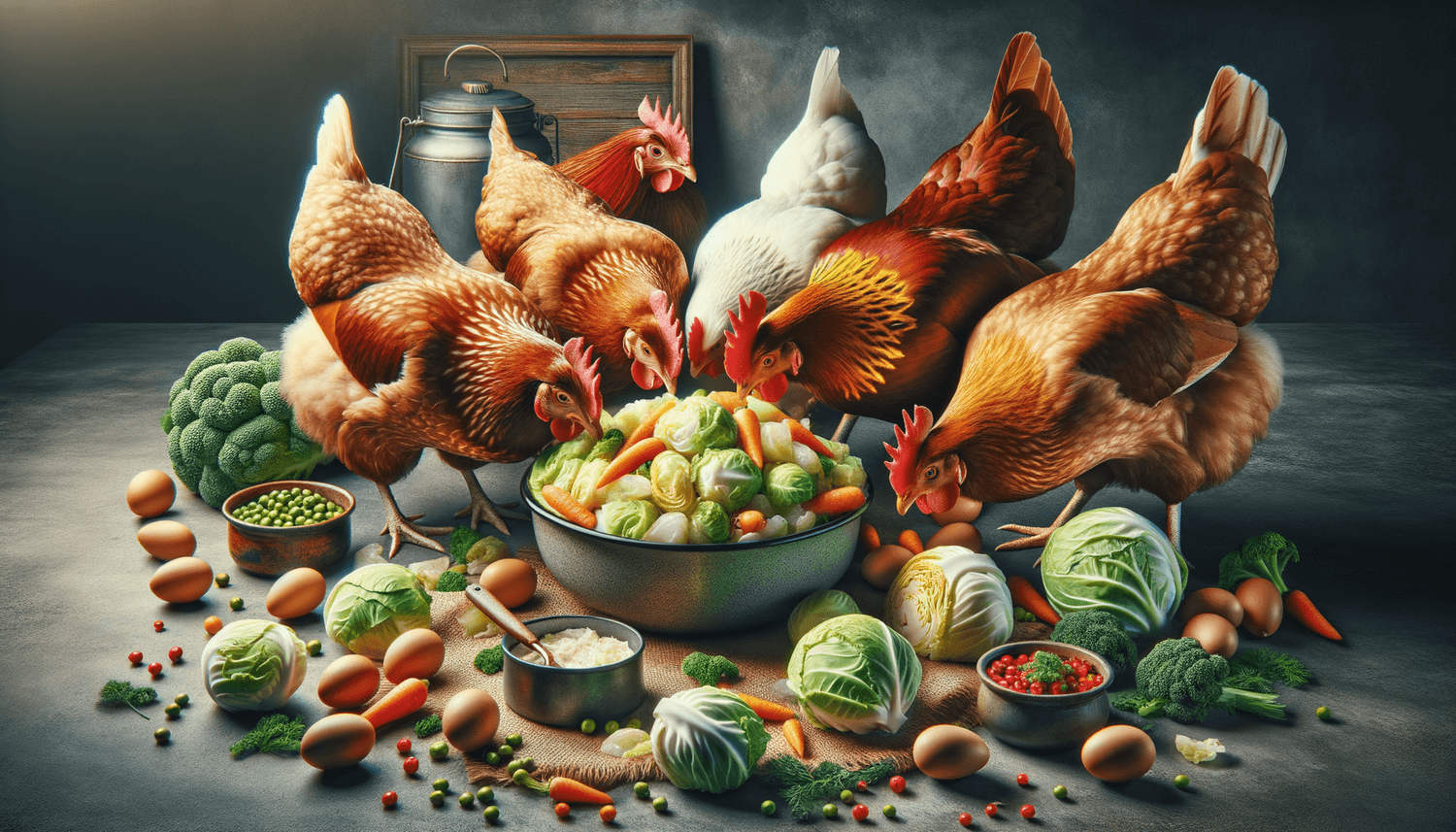Yes, chickens can eat cooked cabbage. This vegetable is a nutritious addition to a chicken’s diet when served in moderation and cooked properly. Cabbage is high in vitamins and minerals, and cooking it can make it softer and easier for chickens to consume without the risk of it impacting their digestive system.
Quick Summary
- Chickens can eat cooked cabbage.
- It provides vitamins, minerals, and aids in digestion when fed in moderation.
- The key benefits are nutritional content, while risks include potential digestive issues if overfed.
- Feed sparingly as part of a balanced diet, ensuring it’s properly cooked with no added spices or oils.
Overview of Cooked Cabbage
Cooked cabbage is a leafy green vegetable known for its dense nutrient content, including vitamins K, C, and B6, along with dietary fiber and an assortment of minerals. When cooked, the fibers in cabbage soften, making it easier to digest for chickens, and potentially reducing the risk of any gastrointestinal discomfort that may occur with tougher plant materials.
Benefits and Risks of Cooked Cabbage for Chickens
Chickens can benefit from the antioxidants, vitamins, and minerals found in cooked cabbage, which can contribute to a stronger immune system and overall health. However, introducing new foods gradually is important to monitor for any adverse reactions. Too much cabbage can cause digestive issues, and it should never contain harmful additives like salt or spices when fed to chickens.
Feeding Guidelines
Cooked cabbage should be cut into small, manageable pieces for chickens to eat easily. It should be served as a treat, not exceeding 10% of their daily food intake. It’s best to feed cabbage in moderation due to its relatively high content of sulfur-containing compounds, which in excess might lead to digestive issues. Ensuring a variety of treats beyond just cabbage will help keep a balance in their diet.
Alternatives
If there are concerns about feeding cooked cabbage to chickens, other vegetables such as cooked carrots, squash, and pumpkin are healthy alternatives. These alternatives provide a variety of nutrients while reducing the risk of digestive issues associated with cruciferous vegetables.
Expert Opinions
Poultry nutritionists and veterinarians often encourage diversity in chickens’ diets to ensure they receive a range of nutrients. Authoritative sources recommend cooking cruciferous vegetables like cabbage to reduce goitrogens which can interfere with thyroid function. Moderation is key to a healthy diet for chickens, just as it is in human nutrition.
Frequently Asked Questions
Here are some common questions people have after reading about chickens and cooked cabbage. These should help clarify any lingering concerns or provide additional guidance on feeding your flock.
How often can I feed my chickens cooked cabbage?
Cooked cabbage should be a treat rather than a staple in your chickens’ diet. It’s advised to feed cooked cabbage in small amounts, perhaps once or twice a week.
Do I need to remove the core of the cabbage before cooking it for chickens?
Yes, it’s a good practice to remove the core of the cabbage before cooking it, as it’s tougher and may pose a choking hazard to chickens.
Can cooked cabbage replace commercial feed for chickens?
No, cooked cabbage should not replace commercial feed. It doesn’t provide all the necessary nutrients chickens need. Chickens should have a well-rounded diet with commercial poultry feed as their primary food source.

















